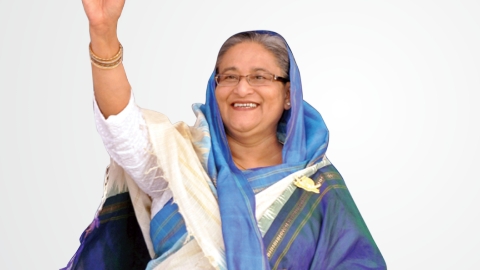Bangladesh’s International Crimes Tribunal (ICT) has sentenced former Prime Minister Sheikh Hasina to death on charges of inciting and ordering murder. The court found her guilty on five counts and ordered the confiscation of her assets.
Following the verdict, interim government chief Mohammad Yunus demanded that India hand over Hasina to Bangladesh as soon as possible. Meanwhile, the government has formally submitted an extradition request to India and is preparing an Interpol Red Corner Notice.
Sheikh Hasina is in India
According to media reports, Bangladesh’s National Security Advisor is expected to visit Delhi next week, where Hasina’s case is likely to be a major issue. Hasina arrived in India after the student protests erupted in July-August 2024 and has been living there since then.
The 2013 Extradition Treaty—What Does It Say?
The extradition treaty between India and Bangladesh has been in force since January 2013. Some key provisions of this treaty are as follows:
1. Refusal of extradition on political matters : India can refuse extradition if a case is considered politically motivated. Hasina has consistently described this decision as an act of political revenge.
2. Certain crimes are outside the political category : Serious crimes such as murder, torture, and enforced disappearance are classified as non-political in the treaty. This means that extradition is possible in these cases—but it also depends on the fairness of the judicial process.
3. Article 8: Grounds for Refusal : According to the Treaty, a request may be rejected if:
- The allegations are contrary to the principles of fairness and good faith
- The case involves a military offense not considered a crime under ordinary criminal law
- The accused is at risk of being sent to unnatural, unfair, or human rights-threatening conditions
Hasina’s Statement – Called the Decision Biased
Reacting to the ICT’s decision, Hasina said the decision was given by a tribunal run by “an unelected government” with no public mandate. She called it unilateral, politically motivated, and biased.
What will India do now?
The matter now depends entirely on the Indian government’s decision.
India can accept Bangladesh’s request if it wishes, as the Treaty is in force and serious allegations have been made.
But the government also has strong grounds for refusal, such as:
- Were the tribunal’s proceedings fair?
- Did Hasina receive adequate legal representation?
Is there a risk of human rights violations or an unfair trial if she is deported? Does this case appear to be political vendetta? India will take a final decision only after considering all these legal, diplomatic, and human rights aspects.

